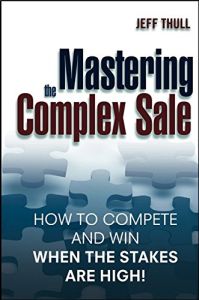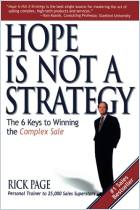加入 getAbstract 阅读摘要

加入 getAbstract 阅读摘要
Jeff Thull
Mastering the Complex Sale
How to Compete and Win When The Stakes are High!
Wiley, 2003
看看什么内容?
Very complex sales don’t require a flashy personality or a big presentation — a tough, customer-focused method will do.
Recommendation
This excellent guide explains a methodology that can help anyone in sales. This sales approach depends essentially on seeing the sale through the customer’s eyes, and involving the customer in designing a solution to his or her own problems. This approach goes against some standard practices in sales, but those standard practices antagonize customers and build distrust. Author Jeff Thull offers helpful reminders on the value of researching individual customers, picking the right entry point to an organization and other best practices. However, he sometimes seems over-enthusiastic and over-optimistic about his system’s infallibility. After all, in some organizations, sales people who tried to follow this methodology would be criticized for failing to meet more conventional targets, such as number of calls per week. This detailed method for conquering many-level, multi-step sales is time and research-intensive, but highly effective. getAbstract.com applauds his emphasis on the value of asking and listening instead of speaking. Highly recommended.
Summary
About the Author
Jeff Thull is President, CEO and founder of Prime Resource Group, a consulting firm whose clients include 3M, Microsoft, Siemens, IBM, Citicorp, Georgia-Pacific and Centerpulse.




















Comment on this summary